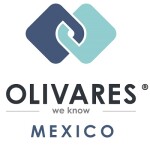Early this year, the Mexican Institute of Industrial Property issued decisions denying registration for the trade mark PINCHE GRINGO BBQ & Design in classes 43 (restaurants) and 30 (sauces). The grounds of denial were a supposed violation of Article 4 of Mexican IP Law, which states that no patents, registrations or authorisations are to be granted for any legal figures or institutions regulated by this law, when the contents of an application are contrary to public order, morals and good customs.
The reasoning for these decisions is that supposedly the term PINCHE is pejorative adjective that means vile and / or despicable and GRINGO refers to a person born in the United States, especially English-speaking.
However, the real meaning of PINCHE is a person who provides services in the kitchen or an assistant cook and GRINGO refers to a person born in the United States, English-speaking. Therefore, the meaning of the trade mark is an assistant cook of American nationality or English-speaking.
The administrative authority not only chose to give a meaning to the word PINCHE which is not its actual meaning but merely a colloquial or slang meaning, but also exceeded its powers in attempting to establish codes of conduct, ethics or morals. It is the responsibility of other authorities to determine if any name used in a restaurant could be offensive or in violation of public order, such as the Federal Consumer Protection Office or other entities empowered to do so. The Institute is exclusively responsible for granting registrations for distinctive signs.
Furthermore, Article 4 of the Mexican IP Law should be declared unconstitutional as it empowers said Institute to decide upon registration for trademarks based on moral issues, when it does not fall within its field of competence.
The term PINCHE has already been registered in our country along with the term FRANCÉS (French), without any objections and having the exact same meaning.
These cases are currently being litigated before the Federal Court for Administrative Affairs. We trust that our courts will not allow decisions where the administrative authority exceeds its powers in violation of applicants' right to protect their intellectual property.

|
Luz Elena Elías |
Olivares
Pedro Luis Ogazón No 17
Col San Angel
01000 México DF
Tel: +5255 53 22 30 00
Fax: +5255 53 22 30 01











